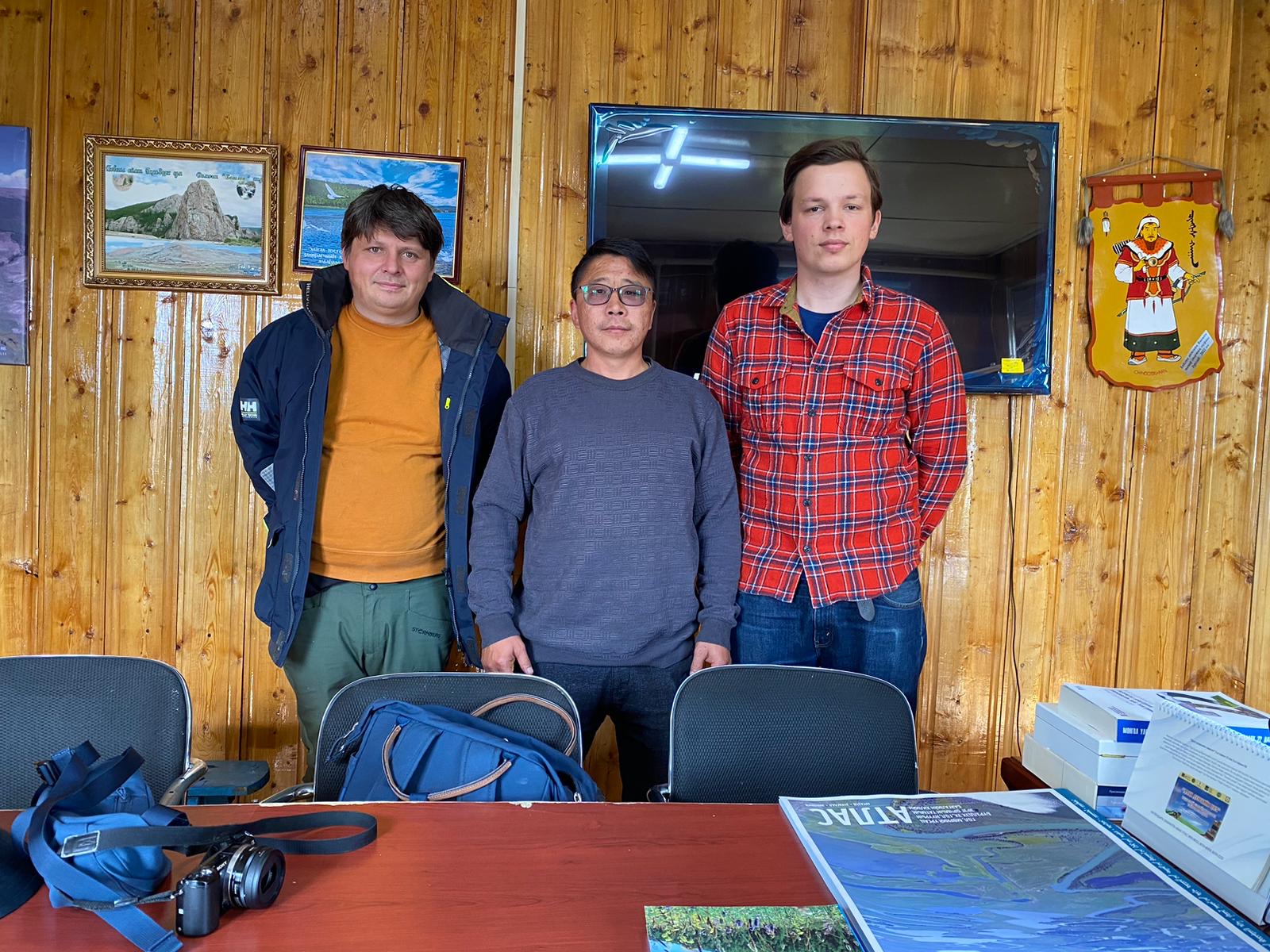ICR team is visiting Dukha reindeer herders in Tsagaannuur village in Mongolia. Reindeer herder Issat Turi, project coordinator Tsogtsaikhan Purev and architect Aksel Falkanger. The purpose of the trip is to develop the report on Indigenous Reindeer Herders’ Dukha Communication Centre. This is a part of the GEF UNEP Reindeer Herding and Resilience project.
The Reindeer Herding and Resilience (RHR) project is a global initiative aimed at building a comprehensive knowledge base on the traditional practices of reindeer herders, focusing on land and pasture management. It is part of an international GEF-UNEP partnership for improving the provision of ecosystem services in peatland areas.
This project seeks to develop the capacity of reindeer herding youth and enhance the overall resilience of reindeer herding communities. By integrating indigenous knowledge with modern sustainable practices, the RHR project aims to create a robust framework for future land management and environmental stewardship.
Key actors in the project are Indigenous reindeer herders, as their knowledge of land and pastures is a base for future land management.
The mission of the RHR project is to establish a global, multi-dimensional knowledge base and enhance the capacity of reindeer herders to contribute to sustainable landscape management. This involves documenting traditional knowledge, translating it into actionable policies and practices, and raising awareness about the critical role of indigenous voices in environmental conservation.
Through various training programs and collaborative efforts, the project aims to build resilience within Arctic communities and promote sustainable practices in reindeer herding.
Find the project progress report here



